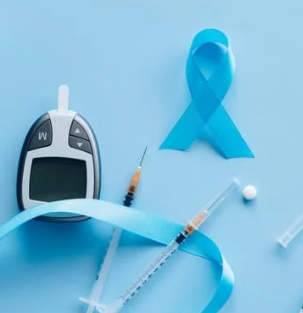This October, two important health observances fall on the same week: National Primary Care Week and Mental Illness Awareness Week. National Primary Care Week (NPCW), which celebrates its twentieth anniversary this year, highlights the importance of primary care in preventing disease and eliminating health disparity. Since 1990, the National Alliance on Mental Illness (NAMI) organizes Mental Illness Awareness Week (MIAW), which aims to educate the public, fight stigma, and provide support.
Azara Healthcare's goal is to improve patient care and outcomes through technology that supports team-based care delivery models. It is incredibly important to treat the whole person through integrated, collaborative care. Mental health problems are often co-morbid with physical problems; bringing mental health services into primary care simultaneously de-stigmatizes treatment and improves access to care. Integrated mental health providers work in collaboration with primary care providers to treat patients in concert, no health aspect goes unattended.
Primary care makes up a large portion of the health sector and mental illness significantly contributes to the broader burden of disease. There are approximately 320,000 primary care physicians in the United states, as well as 60,000 nurse practitioners and 35,000 physician assistants in the workforce. Almost 50% of patient office visits were made to primary care providers. At the frontline of patient health, good access to primary care is associated with more timely care, better preventive care, improved costs, and lower mortality. An important part of ending the stigmas surrounding mental illness and raising public awareness is recognizing how common it is. Annually, approximately 1 in 5 adults in the United States experience mental illness, with almost 1 in 25 adults experiencing serious mental illness. More than 7% of adults experience at least one major depressive episode each year, 60% of whom talked to a general practitioner or family doctor about their depression.
A critical aspect of treating depression is screening for it; you can’t treat something that you don’t know is there. The U.S. Preventive Services Taskforce recommends screening for major depressive disorder in adolescents aged 12 years or older and in the general adult populations. The Health Resources and Service Administration (HRSA) also has a measure for depression screening and follow-up in the Uniformed Data System (CMS2v8). The rationale behind these measures is aptly described by B4Stage4’s philosophy. When looking at chronic, physical illness—like heart disease and diabetes—treatment doesn’t begin when the disease reaches stage 4; care begins with prevention. The same mentality should be applied to mental illness. By paying attention to minor symptoms like sleep loss and feelings of anxiety, serious and long-lasting episodes of depression can be curtailed and quality of life can be improved.
For the calendar year 2020, HRSA has several proposed changes to UDS. Notably, HRSA plans to update the measure for depression remission at twelve months to table 6B (CMS159v8). This measure captures the percentage of patients age 12 or older with major depression or dysthymia who reached remission 12 months (+/- 2 months) after an index event, with CMS defining remission as scoring less than 5 on the PHQ-9 or PHQ-9M. By starting to use this measure now, you can track changes in patients with depression. The current depression measure (CMS2v8) looks at screening and follow-up but does not include any data on the outcome of patients with depression. Appropriate, reliable follow-up is highly correlated with improved response and remission scores and preventing relapse. This new measure can show the impact that follow-up care (psychotherapy, pharmacological interventions, etc.) has on the treatment of patients diagnosed with depression.
Azara’s DRVS can aide health centers in the management of individuals diagnosed with depression.
- Patient Visit Planning Report:
- Providers can see if their patients are due for a depression screening or were out-of-range on their last one.
- Care Management Passport:
- A more in-depth look at patients
- What medications are prescribed
- Active problems or comorbidities
- Trend lines of PHQ-9 scores
- Registries:
- Track all patients with depression
- Create cohorts to monitor specific interventions
- Referral Management module:
- Track referral completions
- Close referral loops
- Azara Care Management application:
- Review the patient’s treatment record
- Including care received outside the Health Center
- Prioritize and schedule follow up tasks
- Review the patient’s treatment record
A focus on the whole-person orientation requires a health center to meet all of a patient’s needs, both physical and mental. Integrated behavioral health in primary care allows for treatment to be comprehensive, coordinated and individually tailored. Azara is here to help improve patient outcomes.
If you are interested in learning more about DRVS’s Referral Management module or the Azara Care Management application, please contact your Primary Care Association, HCCN, or Azara representative.
If you or a loved one are experiencing thoughts of suicide get help from a crisis or suicide prevention hotline. Try the National Suicide Prevention Lifeline at 800-273-8255.
Related Articles

Turning Every Encounter into Value: How Azara's EHR Plug-In Elevates Risk Adjustment at the Point of Care
Explore Insights
Value-Based Care Foundations Part 2: A New Chapter in Risk Adjustment
Explore Insights
